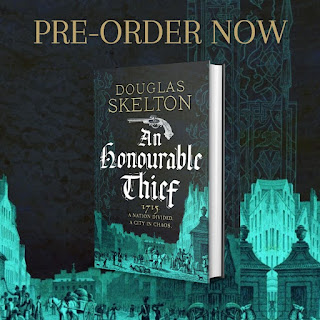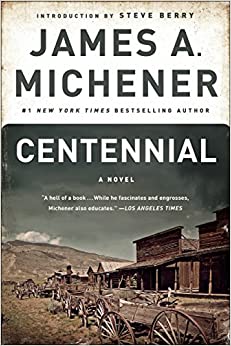Like many authors I have to do a fair amount of reading, perhaps to provide a publicity puff, preparation for a panel or research (yeah, been doing a lot of that recently). I seem to have little time to read for pleasure, although I am looking forward to a new one from Robert Crais, by the way.
Now and again though I pull something down from a shelf just for the sheer hell of it. It will often be something I read many years ago and I don't intend to fully re-reading but merely dip in and see what I think of it now.
I have books I first read in my teens - yes, I'm a hoarder. Dusty paperbacks, some with cracked spines thanks to much rereading, some with loose pages, a few with covers detached because paperbacks can be so flimsy. Remember, we're not talking books I read yesterday here. Not even the day before that. It's many, many days, weeks, months, years, decades.
I have titles by authors who were hot in their day but some not so much now. Authors whose every new release was keenly anticipated.
Ed McBain I've mentioned many times before but there's also Alistair MacLean (now experiencing something of a resurgence), Robert Ludlum, John Mortimer (creator of Rumpole of the Bailey), Edmund Crispin (my favourite from the Golden Age of Crime Writing), even a number of old Wilbur Smiths (though he did continue to be popular).
But the one I picked up recently was Harold Robbins. His back catalogue is still in print but his name not so recognisable these days.
Good grief, I hear some of you say, how can you sully yourself with such trash?
Well, very easily, actually.
He specialised in bestsellers that were somewhat saucy in places. Think 50 Shades of Grey but less explicit and with a better story. Today we'd call them bonkbusters but his earlier ones were more than that. Many were epic in their scope and saga in their approach.
His most famous work was perhaps 'The Carpetbaggers', a thinly veiled drama based on the life of Howard Hughes. This massive story detailed the rise of Jonas Cord from the wastrel son of a millionaire to one of the most powerful businessmen on the planet. It was about commerce and it was about the movies and it was about how many women Jonas could bed in around 700 pages (a lot, by the way. It's a wonder he had the strength to make his millions).
It even found time to tell a western in the quest by Max Sand - later known as Nevada Smith in the story - to track down the murderers of his parents. When the book was filmed, with George Peppard as Jonas, this section was spun off into a movie of its own with Steve McQueen.
'The Carpetbaggers' was part of a trilogy about the movies and TV that began with 'The Dream Merchants' and ended with 'The Inheritors'. It was a world he knew something about. Harold Robbins had worked for Universal Pictures and then became an independent producer himself, making movies from his early novels.
But my personal favourite was 'A Stone for Danny Fisher', the two-fisted tale of a young boxer who gets mixed up with the mob. It all ends tragically, of course, just the way I like 'em. It was filmed, too - but as an Elvis Presley musical, 'King Creole' in which the boxing character became a singer and the original New York setting was switched to New Orleans. It worked well enough but I would love to see someone film the book.
Were the books any good? Well, yes and no. The writing was fairly basic and there were decisions made in the storytelling that might raise an eyebrow today. In 'The Inheritors' the story leaps two weeks so abruptly that had me going back to see what I had missed. Nowadays we might pad it out a bit, add something more, have a section break or even begin a new chapter but no, old Harold just ploughed right on.
Some of the characters were cardboard enough to store cereal in. The women were much too willing to jump into bed with the protagonist and many of them had very little in the way of depth. In fact some of the men were also so shallow that a dive into their gene pool would cause concussion.
But...
There was, for me, a power in that storytelling that held me, even when I picked up 'The Inheritors' and began to leaf through it. Soon I was carried through to the end. Despite all the issues I mention above, I was invested in the plot and I wanted to find out what happened.
I had forgotten how tricky he had been in that storytelling. Timelines slipped back and forward, often without as much as a nod to the reader. I had to be on my toes to keep up with it.
Yes, it was racy, at least for its day, not so much now. I don't claim any real literary merit - whatever the hell that is - but I found it compelling. At their heart they are soap opera. Without him I don't think we would have had the likes of 'Dallas' and 'Dynasty'. That was the world he so often wrote about, battles in boardroom and bedroom, high finance and high passions. We might not have had Jackie Collins or Sidney Sheldon, perhaps even Arthur Hailey.
There will be those who think we might have been better off but these authors all sold a bundle and brought pleasure to millions. And there's nothing wrong with that. Not everything needs to be a Booker prizewinner. There's room for escapism. Especially now.
The books were very much of their time and that has to be recognised. They could reflect attitudes that we today find troubling and I am not for a minute suggesting that we should applaud them or even return to such things, so don't write in. My purpose today is to highlight how writing styles, even in what they call pulp, has changed. As his career progressed the books became less about the story, more about the sex and they suffered because of it, became less interesting. Some of the storytelling techniques - the shifting timelines, the multi-strand POV - remain in use but the speed of it less so. For instance, 'The Carpetbaggers' today might become a trilogy - yes, he has that much story in those 700 pages but not that much colour. We might spend a little more time on character and less on sensation.
Well, perhaps some of us.









